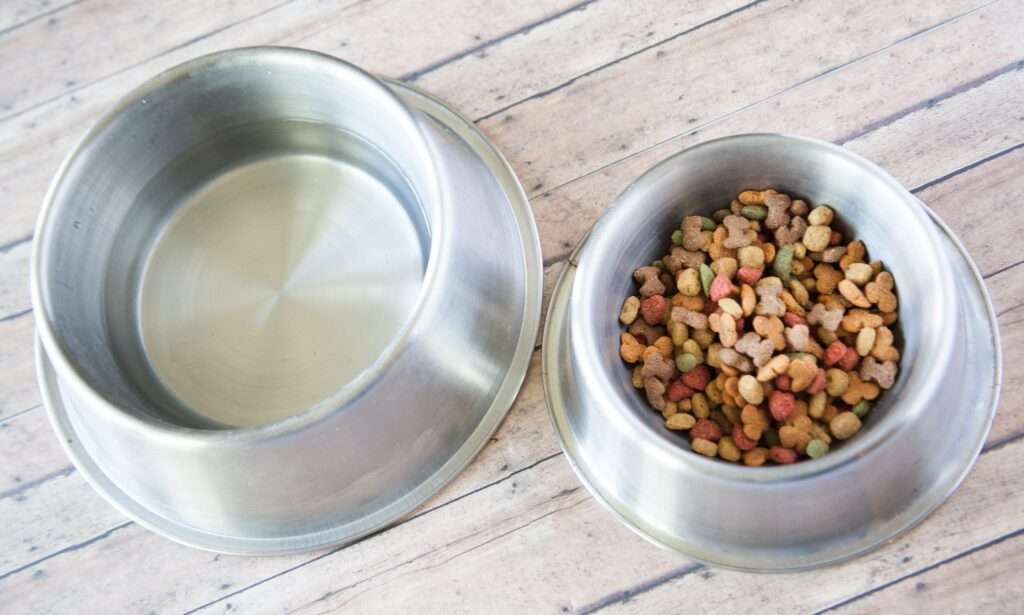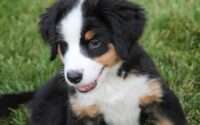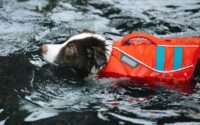Why Is My Dog Not Eating but Drinking Water? Urgent Answers You Need Now!
If you’re a dog owner, you’re probably used to your furry friend being a voracious eater. So, when your dog suddenly stops eating, it can be concerning. If you notice that your dog is not eating but drinking water, it’s important to investigate the issue further. While it’s possible that your dog may simply be feeling picky, changes in eating habits can also indicate a more serious underlying issue.
Being a responsible dog owner requires monitoring your dog’s eating habits and seeking veterinary care if any alarming changes are noticed. This article will cover the possible causes of a dog not eating but drinking water, the evaluation of a dog’s eating behavior, available treatment options, and preventive measures to uphold a healthy diet for dogs.
Possible Causes of a Dog Not Eating But Drinking Water

There are several medical and non-medical causes that may lead to a dog not eating but drinking water. Dental problems, digestive issues, metabolic disorders, cancer, and infection or illness can all cause decreased appetite in dogs. Non-medical causes, such as stress or anxiety, changes in routine or environment, aging, or cognitive decline, can also affect a dog’s appetite.
It’s important to observe your dog’s behavior and look for other signs of illness or discomfort in addition to changes in eating habits. For instance, if your dog appears lethargic or experiences diarrhea, these could potentially indicate an underlying health problem. In some cases, dogs may simply be picky eaters, or they may have food preferences. Nevertheless, it’s prudent to exercise caution and seek veterinary care if you observe any troubling changes in your dog’s eating behavior.
How to Assess a Dog’s Eating Habits
As a responsible dog owner, it’s important to monitor your dog’s eating habits and assess any changes in appetite. Keeping track of your dog’s food intake and observing their behavior during mealtimes can provide important information for your veterinarian. Utilizing a food diary can be helpful in monitoring your dog’s eating habits and identifying any fluctuations in appetite or behavior.
If you notice that your dog is not eating but drinking water, there are several signs to look for that may indicate an underlying health issue. For example, if your dog is experiencing pain or discomfort, they may show reluctance to eat or may eat more slowly than usual. Moreover, if your dog is experiencing vomiting, diarrhea, or other digestive issues, it could be a warning sign of an underlying health issue.
Treatment Options for a Dog Not Eating But Drinking Water
If you observe that your dog is drinking water but not eating, it’s critical to seek veterinary care. Your veterinarian can diagnose any potential underlying health concerns and offer appropriate treatment options. Medical treatments may include medications, surgery, or nutritional support. In some cases, dogs may require hospitalization or supportive care to address underlying health issues.
In addition to medical treatments, there are several behavioral interventions that may help address a dog’s decreased appetite. For example, reducing stress and anxiety, establishing a regular routine, and offering high-quality, appealing food options can all help encourage a dog to eat. Your veterinarian may also recommend offering small, frequent meals or feeding your dog a special diet to address any underlying health issues.
It’s crucial to keep in mind that every dog is unique and may require personalized treatment options. Your veterinarian can offer individualized recommendations based on your dog’s specific needs. By maintaining close communication with your veterinarian and staying attentive to your dog’s eating habits, you can help ensure that your furry companion remains content and in good health.
Preventative Measures to Maintain a Healthy Diet for Dogs

Preventative measures can help maintain a healthy diet for dogs and prevent future issues with appetite. Here are some tips to keep in mind:
- Offer high-quality, nutritionally balanced food that meets your dog’s individual needs.
- Avoid table scraps and high-fat foods, which can cause digestive issues and weight gain.
- Provide plenty of fresh water at all times to prevent dehydration.
- Establish a regular feeding schedule and stick to it.
- Offer small, frequent meals instead of one large meal.
- Keep an eye on your dog’s weight and adjust their food intake as needed.
- Monitor your dog’s behavior during mealtimes and address any issues promptly.
- Provide plenty of exercise and mental stimulation to help keep your dog healthy and happy.
By taking these preventative measures, you can help maintain your dog’s health and prevent future issues with appetite.
Conclusion
If you notice that your dog is not eating but drinking water, it’s important to investigate the issue further. While there are several possible causes of decreased appetite in dogs, seeking veterinary attention and monitoring your dog’s behavior can help address underlying health issues.
To maintain your dog’s health and happiness, it’s important to monitor their food intake and behavior, provide high-quality, nutritionally balanced food, and establish a consistent feeding routine. Working collaboratively with your veterinarian and implementing preventative measures can further promote your furry friend’s wellbeing.
Monitoring your dog’s eating habits and promptly seeking veterinary attention for any concerning changes is an essential responsibility of dog ownership. Providing proper care and attention can help ensure that your furry friend remains healthy, happy, and well-nourished.
Frequently Asked Questions
Q: What are some possible medical causes of a dog not eating but drinking water?
A: Dental problems, digestive issues, metabolic disorders, cancer, and infection or illness can all cause decreased appetite in dogs.
Q: What are some non-medical causes of a dog not eating but drinking water?
A: Stress, anxiety, changes in routine, and picky eating habits can all contribute to a dog’s decreased appetite.
Q: When should I be concerned about my dog not eating?
A: Anorexia for more than 24 hours should not be ignored, as it is often a warning that something else is going on. If your dog is exhibiting other symptoms such as vomiting or diarrhea, it’s best to consult with a veterinarian.
Q: What should I do if my dog is not eating but drinking water?
A: If your dog is not eating but drinking water, monitor their behavior and symptoms closely. Offer them small amounts of food and try to entice them with treats. If their condition persists for more than 24 hours, it’s best to consult with a veterinarian to rule out any underlying medical conditions.
Q: Can dehydration cause a dog to lose their appetite?
A: Yes, dehydration can cause a dog to lose their appetite. If your dog is not drinking enough water, it can lead to dehydration, which can in turn cause a decrease in appetite.
Q: What can I do to encourage my dog to eat when they’re not feeling well?
A: You can try offering your dog small, frequent meals throughout the day, warming their food up to make it more appealing, and adding a small amount of low-sodium chicken broth to their food to make it more flavorful.
Q: Are there any home remedies that can help stimulate a dog’s appetite?
A: Some home remedies that may help stimulate a dog’s appetite include offering them small amounts of boiled chicken and rice, adding a small amount of canned pumpkin to their food, and offering them a small amount of plain, unsweetened yogurt.
Q: Is it normal for a dog to lose their appetite as they age?
A: Yes, it is not uncommon for dogs to lose their appetite as they age. This can be due to a variety of factors, including changes in metabolism and dental issues.
Q: Can certain medications cause a dog to lose their appetite?
A: Yes, certain medications can cause a dog to lose their appetite. If your dog has recently started taking a new medication and is experiencing a decrease in appetite, it’s important to consult with your veterinarian.
Q: What can I do to prevent my dog from losing their appetite in the first place?
A: To prevent your dog from losing their appetite, it’s important to provide them with a healthy and balanced diet, offer them plenty of fresh water, and provide them with regular exercise and mental stimulation. Regular visits to the veterinarian can also help catch any underlying medical issues early on.




